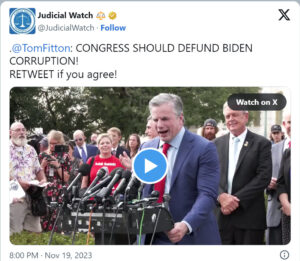Senate moves full steam ahead on massive Trump budget bill after GOP divisions derail House
Senate Republicans are moving full steam ahead with their plans for a massive conservative policy overhaul through the budget reconciliation process, despite House GOP leaders still insisting their chamber is set to go first.
Senate Budget Committee Chairman Lindsey Graham, R-S.C., unveiled a 61-page resolution that would fund President Donald Trump's priorities for border security, fossil fuel energy and national defense.
It would fund completion of Trump's border wall, as well as provide dollars for more beds in detention centers at the border. The bill would also include funds to hire more Immigration and Customs Enforcement agents, hire more personnel patrolling the border and increase the number of immigration judges in order to process the backlog of existing asylum cases.
On energy, the bill is aimed at ramping up offshore drilling leases and stopping the Biden administration's methane emissions fee.
SCOOP: KEY CONSERVATIVE CAUCUS DRAWS RED LINE ON HOUSE BUDGET PLAN
The legislation would also fund increased military readiness, grow the U.S. Navy and build an "integrated air and missile defense to counter threats," according to a summary provided by Graham's office.
Graham also signaled the bill would be deficit-neutral, with his press release stating that its $342 billion in new spending will be offset by the same amount of money in savings.
Per the Senate's plan to split Trump's reconciliation priorities into two bills, it is expected that extensions to Trump's Tax Cuts and Jobs Act – as well as other key Trump proposals, such as eliminating taxes on tipped and overtime wages – will be in a second plan released at a later date.
Republicans plan to use their majorities in the House and Senate to pass a wide swath of Trump policy initiatives, from extending the 2017 Tax Cuts and Jobs Act to funneling more cash to operations at the U.S.-Mexico border.
The budget reconciliation process makes that possible by lowering the threshold for Senate passage from 60 votes to a simple 51-seat majority. Because the House already operates on a simple majority threshold, it will allow Republicans to skirt Democratic opposition to pass their agenda – provided the measures included involve budgetary or other fiscal matters, as reconciliation rules call for.
The first step in reconciliation is advancing a resolution through the House and Senate budget committees, which will then give instructions to other committees of jurisdiction that will eventually form a final bill.
The Senate's plan differs significantly from the House's intended approach.
While both sides agree on what should be passed via reconciliation, House GOP leaders and Republicans on the Ways & Means Committee are concerned that the intense political maneuvering the process takes will mean they run out of time before passing a second bill with Trump's tax cuts at the end of this year.
BLACK CAUCUS CHAIR ACCUSES TRUMP OF 'PURGE' OF 'MINORITY' FEDERAL WORKERS
A Ways & Means Committee memo sent earlier this year projected the average American household could see taxes rise by over 20% if those provisions expire at the end of 2025.
Trump himself has repeatedly called for "one big, beautiful bill" but said he ultimately was not concerned about the packaging as long as all of his priorities were passed.
House Republicans had intended to move one bill through their budget panel this week, but the process was stalled as spending hawks pushed for deeper funding cuts than what GOP leaders initially proposed.
Conservatives have insisted that any plan Republicans pass must be deficit-reducing or deficit-neutral.
House Speaker Mike Johnson, R-La., told reporters on Friday morning that he was playing "phone tag" with Graham due to their schedules but signaled he still intended for the House to move ahead with their plan next week.
"I sent him a text message early this morning and explained where we are in the process and how it's moving aggressively," Johnson said.
He told reporters he hoped for a House Budget Committee markup of the bill as early as Tuesday.
Graham, meanwhile, intends to advance his bill through committee on Wednesday and Thursday.
Senate Republicans are meeting with Trump at Mar-a-Lago on Friday night.
Fox News' Daniel Scully contributed to this report.
